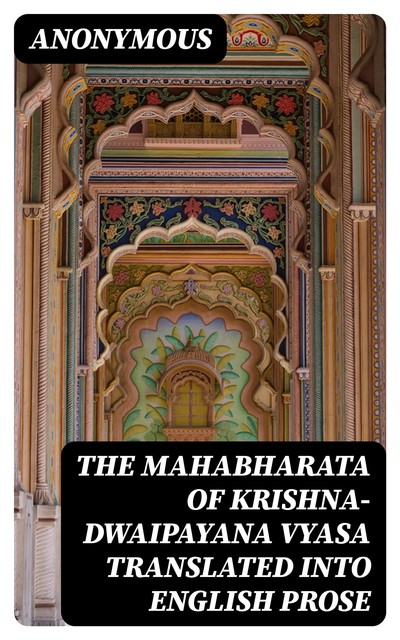The 'Mahabharata of Krishna-Dwaipayana Vyasa Translated into English Prose' stands as a monumental endeavor to render the complexity of one of India's greatest epics into accessible English. This prose translation seeks to illuminate the intricate narratives surrounding the Kurukshetra War, philosophical discourse, and the ethical dilemmas faced by its characters. Emphasizing clarity and fluidity, the translation maintains a reverence for the original Sanskrit text's literary nuances while inviting readers to engage with the epic's vast tapestry of ideas, from duty (dharma) to devotion (bhakti). The translator navigates the text with scholarly precision, ensuring that both the plot's richness and its spiritual layers are preserved, making this edition an invaluable resource for understanding the cultural and philosophical depth of the Mahabharata. While the author of this translation remains anonymous, it is essential to recognize the intellectual rigor and cultural heritage that likely inform this work. Rooted in the Indian tradition, the translator is possibly influenced by their own understanding of the text's historical significance and its role in shaping moral and cultural discourses. The choice to translate such a revered work may stem from a desire to bridge the gap between Eastern and Western literary traditions, making the epic accessible to a global audience. This translation of the Mahabharata is highly recommended for scholars, students, and general readers alike, as it not only presents a pivotal work of world literature but also offers a profound exploration of humanity's shared experiences and moral quandaries. By engaging with this text, readers will gain insights into the values that have persisted across millennia, ensuring that the wisdom of Krishna-Dwaipayana Vyasa continues to resonate in contemporary discourse.


